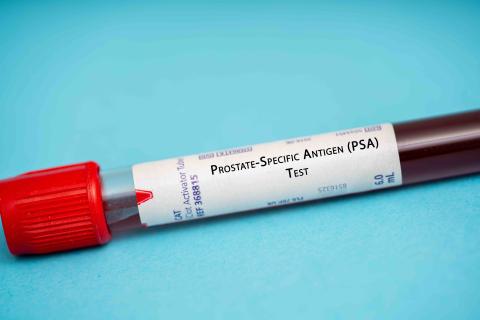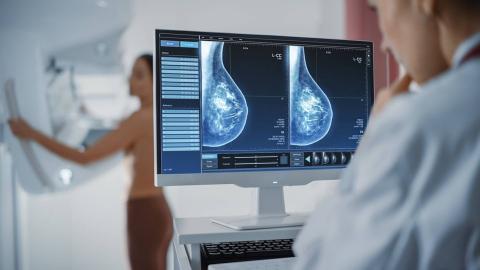The main positive aspect of screening lies in the early detection of tumours, which in principle allows earlier treatment and a better prognosis. However, there are also negative aspects that need to be assessed and calibrated. These include false positives - the fact that the test may be positive without there actually being a disease - and their corresponding psychological consequences, unnecessary tests that sometimes have side effects, and the costs involved in this type of campaign. These are some of the conclusions of the briefing organised by the Science Media Centre Spain on the occasion of World Cancer Research Day, which is celebrated every 24 September.
"Eighteen criteria have been defined to evaluate when screening should be included in the National Health System's common portfolio of services," explained Adrian Aginagalde, head of the Epidemiological Surveillance and Health Information Unit in Gipuzkoa and, previously, head of the Population Screening Programmes Unit at the Ministry of Health. One of the most hotly debated of late as to whether it should be incorporated is lung cancer. Although several scientific societies have been in favour, the Ministry of Health has ruled it out for the moment after an evaluation report was recently published.
Lung cancer is currently the most deadly cancer, not only in our country but worldwide, and primary prevention policies, which can be much improved, have had zero impact
Juan Carlos Trujillo
"Lung cancer is currently the most deadly cancer, not only in our country but worldwide, and primary prevention policies, which can be greatly improved, have had zero impact," said Juan Carlos Trujillo, clinical head of the Thoracic Surgery Service at the Hospital de la Santa Creu i Sant Pau in Barcelona, co-coordinator of the CASSANDRA lung cancer screening project and director of Integrated Research Projects in Thoracic Oncology at the Spanish Society of Pneumology and Thoracic Surgery (SEPAR), who expressed some discrepancies with respect to the evaluation report issued. "Our position, not only from SEPAR but also from other societies, is that we should propose a feasibility programme for this screening, knowing the difficulty of implementing it and the inequalities that exist even at a geographical level," he said.
However, "there is still a lot of controversy", said Isabel Portillo, a doctor specialising in Preventive Medicine and Public Health and coordinator of the working group on the early diagnosis of cancer in the Spanish Society of Epidemiology. Portillo participated in the strategy on how to define screening within the European Union and is also a member of the European LUCIA project, which "will shed light on risk factors and prevention of lung cancer and is expected to resolve the most controversial issues or those about which there is a lot of uncertainty".
False negative results, false positives and complications can occur in all screenings, so we must be very cautious when implementing them
Isabel Portillo
Portillo emphasised: "We have to be clear that in all screening tests there can be false negative results [if the test does not detect the tumour when it exists], false positives and complications, so we have to be very cautious when implementing them. In addition, we have to make sure that the entire population with risk factors can benefit. Equity is a key criterion for offering screening.
"According to the evaluation report, which is always produced by an independent agency, there are 5 criteria out of 18 that are fully met. On 10 of them the evidence is still doubtful," Aginagalde explained. "I humbly believe that the evidence seems insufficient to take the next step. This does not mean that it is discarded, but that we need more and better studies, as well as funding for pilot projects," he added. Both Aginagalde and Trujillo agreed that "research in population health should be encouraged in Spain, which is at the bottom of the list when compared, for example, with personalised medicine".
Extended age ranges and possible conflicts of interest
As for other possible new developments in screening in Spain, Aginagalde explained that what is closest to being extended are the screening ages for colon cancer and probably breast cancer, while, although the European Union recommends studying the implementation of prostate cancer screening in the over-70s, "it does not seem that the new scientific evidence is going to change the situation substantially".
The session also discussed the increasingly frequent news announcing blood tests to detect or estimate the risk of suffering various types of cancer. For Isabel Portillo, "this is dangerous. The scientific evidence is still scarce". These tools may involve doing "a lot of tests that could even cause death and perhaps lead to a psychiatric consultation for life", she warned.
As for possible conflicts of interest related to screening campaigns, Aginagalde acknowledged that "very advanced therapies are being launched that the market needs to make profitable, and increasing or detecting more cases makes these investments profitable. However, things can be done well and with transparency. In fact, sometimes research also needs to be discussed with industry.




